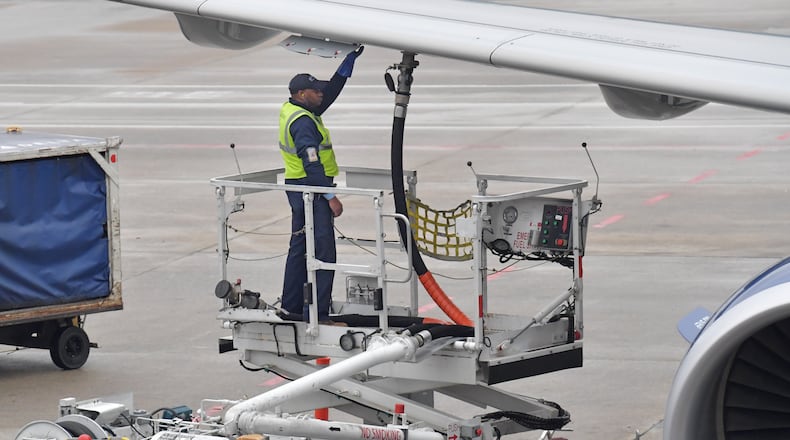Delta Air Lines shareholders voted Thursday morning in favor of a measure to require the company to report its climate lobbying activities, a move the company’s board of directors was against.
It’s unusual for shareholders to vote against a board’s wishes. A similar proposal received a 46% vote by Delta shareholders last year. However, institutional investors have increasingly pushed companies on environmental issues, seeking to better understand climate risk.
The shareholder proposal that was approved will require the board to issue a report within the next year describing how Atlanta-based Delta’s lobbying activities align with the Paris climate agreement’s goal to limit average global warming to “well below 2 degrees Celsius,” and how the company plans to mitigate associated risks. The proposal was submitted by French banking giant BNP Paribas Asset Management.
Delta’s board opposed the measure, saying the company has been transparent about its lobbying efforts and environmental policies that are “aligned with responsible climate action.” The airline announced last year a plan to invest $1 billion toward carbon neutrality over 10 years.
While Delta and other carriers are buying carbon offsets and testing and exploring the use of biofuels, there are yet to be any viable large-scale solutions such as electric commercial planes or a 100% sustainable aviation fuel system.
In recorded remarks played during Delta’s annual shareholder meeting held virtually, BNP PAM’s Americas head of stewardship Adam Kanzer said without the report, shareholders cannot fully assess if Delta is acting in the company’s best long-term interests on the matter. He added that delays in implementing the Paris agreement “introduce uncertainty and volatility into our portfolios.”
A majority of shareholders at five other companies voted for similar proposals, including at United Airlines, according to Kanzer.
The measure also requires Delta’s board to report how the company’s lobbying through trade associations, social welfare and nonprofit organizations such as 501(c)(4)s align with the Paris climate agreement. Kanzer said industry group Airlines for America, which Delta is a member of, has supported emission standards that the Environmental Protection Agency said would increase emissions.
“Trade associations often represent a lowest common denominator approach to public policy,” Kanzer said.
About the Author
The Latest
Featured



